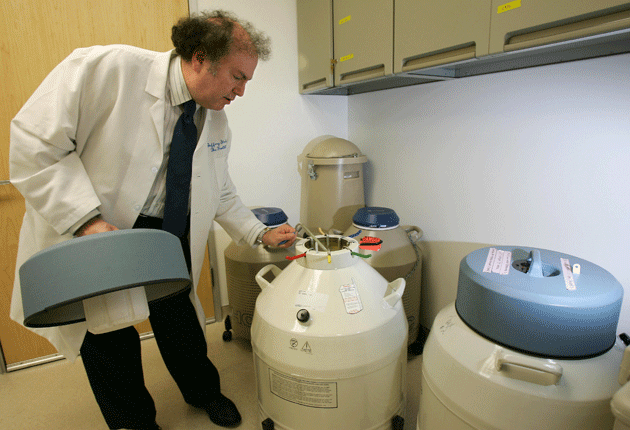
Your support helps us to tell the story
From reproductive rights to climate change to Big Tech, The Independent is on the ground when the story is developing. Whether it's investigating the financials of Elon Musk's pro-Trump PAC or producing our latest documentary, 'The A Word', which shines a light on the American women fighting for reproductive rights, we know how important it is to parse out the facts from the messaging.
At such a critical moment in US history, we need reporters on the ground. Your donation allows us to keep sending journalists to speak to both sides of the story.
The Independent is trusted by Americans across the entire political spectrum. And unlike many other quality news outlets, we choose not to lock Americans out of our reporting and analysis with paywalls. We believe quality journalism should be available to everyone, paid for by those who can afford it.
Your support makes all the difference.
What courses? Medical science; biomedical science; clinical sciences; neuroscience; anatomical sciences; healthcare science; physicology; anatomy; medical biochemistry; genetics; immunology; medical engineering.
What do you come out with? BSc in nearly all cases, an MSci in Scotland, or sometimes a BEng or MEng if it’s an engineering-based degree.
Why do it? “From cancer screening to diagnosing diabetes, from typing blood for transfusion to food poisoning and infection control biomedical scientists are at the heart of modern health care. Without medical scientists the diagnosis of disease, determination of whether treatments are effective and the search for new cures would not be possible. In the UK medical scientists are not just employed in NHS pathology laboratories but in other areas such as the pharmaceutical industry and in government departments. A medical science degree is an ideal springboard to a health–related career.” – Dr Peter Hanson, director of biology and biomedical science undergraduate programmes at Aston University
What's it about? The science that underpins the diagnosis and treatment of diseases and all kinds of ailments. Doctors may get all the credit, but they wouldn’t be anywhere without the hard work of those scientists ‘behind the scenes’. Not as hands-on as medicine, in the sense that you won’t be coming face-to-face with patients, medical science offers a lab-based route where you could be working on anything from testing and improving existing treatments to discovering the latest breakthrough cure. Courses are biology-based, with general medical science and biomedical science degrees giving you a taster of a breadth of core areas such as microbiology, biochemistry and physiology, while more specialized degrees focus on one particular area in-depth, such as those in genetics or immunology.
Study options: Degrees last three years, generally, which means you’re nowhere near the five-year slog of medicine. In Scotland you do a four year master’s, and a couple of English institutions also offer this option, especially if you’re studying medical engineering. Several universities offer sandwich years, where you work in a clinical laboratory and apply your newly-gained skills in a professional context.
What will I need to do it? Biology A-level is pretty essential, and many places will ask for another science too. Entry grades vary; at Aston you’ll need ABB for its biomedical science course, at Cardiff it’s AAB and to study medical sciences at Leeds you could need AAA.
What are my job prospects? It varies, depending on course. Medical scientists may go on to work in NHS or private laboratories, or go into pharmacy, while others choose health-related careers in medical journalism, sales, marketing or teaching. For those heading into research, further study is going to be needed, and according to The Times’ Good University Guide 2012 over 40 per cent of anatomy and physiology graduates go down this route (hence why the graduate employment rate seems so low at 25 per cent). Those on more specific, vocational courses, tend to fare better straight after graduation, with The Times’ Guide stating that almost three quarters of leavers from ‘other subjects allied to medicine’ going straight into graduate-level positions, on a modest starting salary of just over £20,000.
Where’s best to do it? The Complete University Guide doesn’t have a category for medical sciences, but Cardiff comes second for anatomy and physiology and offers degrees in biomedical sciences, with specialisms in anatomy, neuroscience and physiology, while UCL is the next highest ranking university offering biomedical science. For other subjects allied to medicine, Aston comes top out of those offering medical science degrees, with its biomedical science degree, followed by Leeds and Cardiff. Students at Oxford Brookes and Loughborough fared well for student satisfaction.
Related degrees: Medicine; biological sciences; chemistry; dentistry; nursing; health and social care.
Join our commenting forum
Join thought-provoking conversations, follow other Independent readers and see their replies
Comments